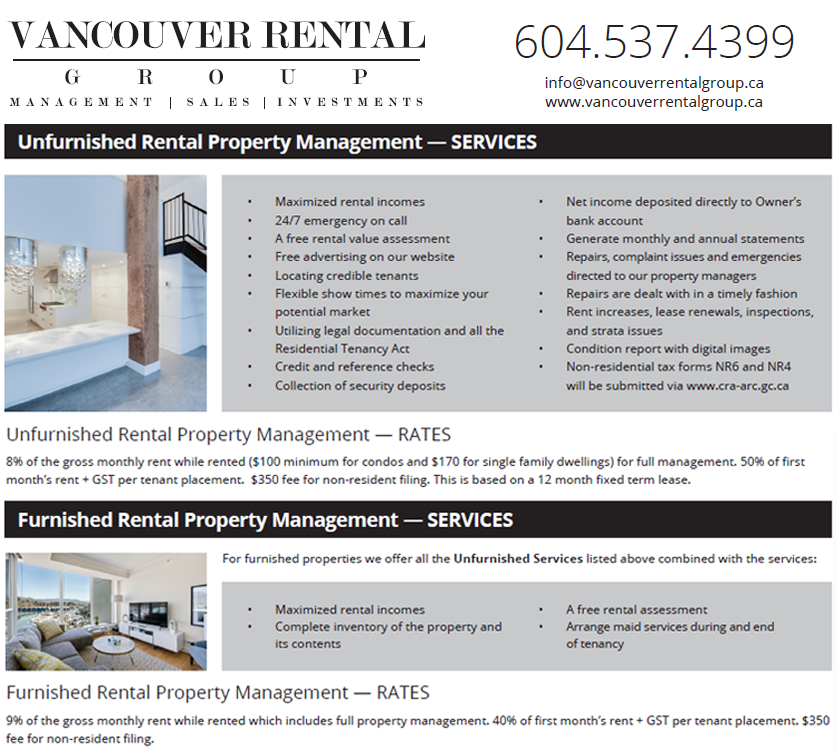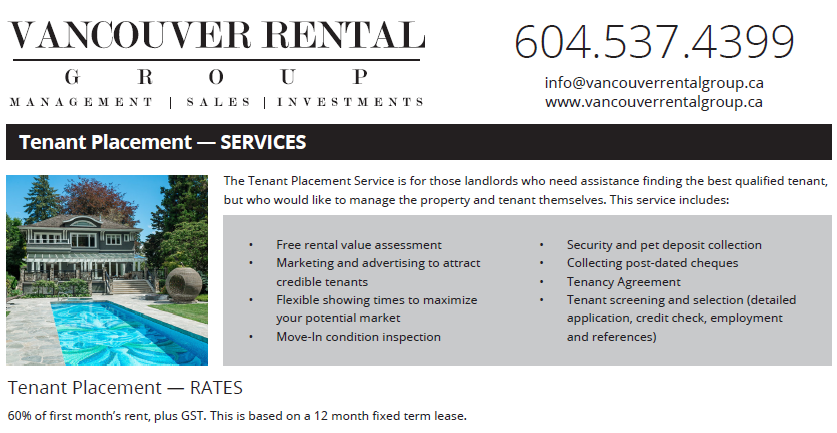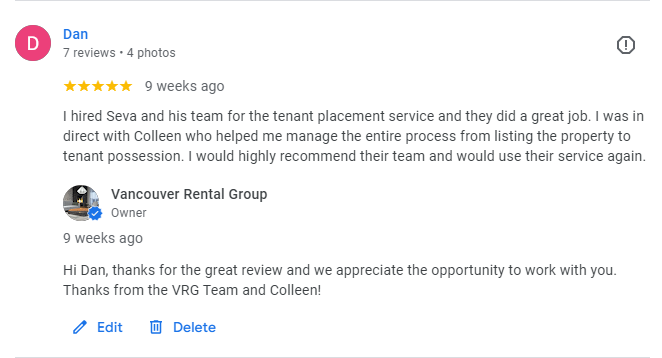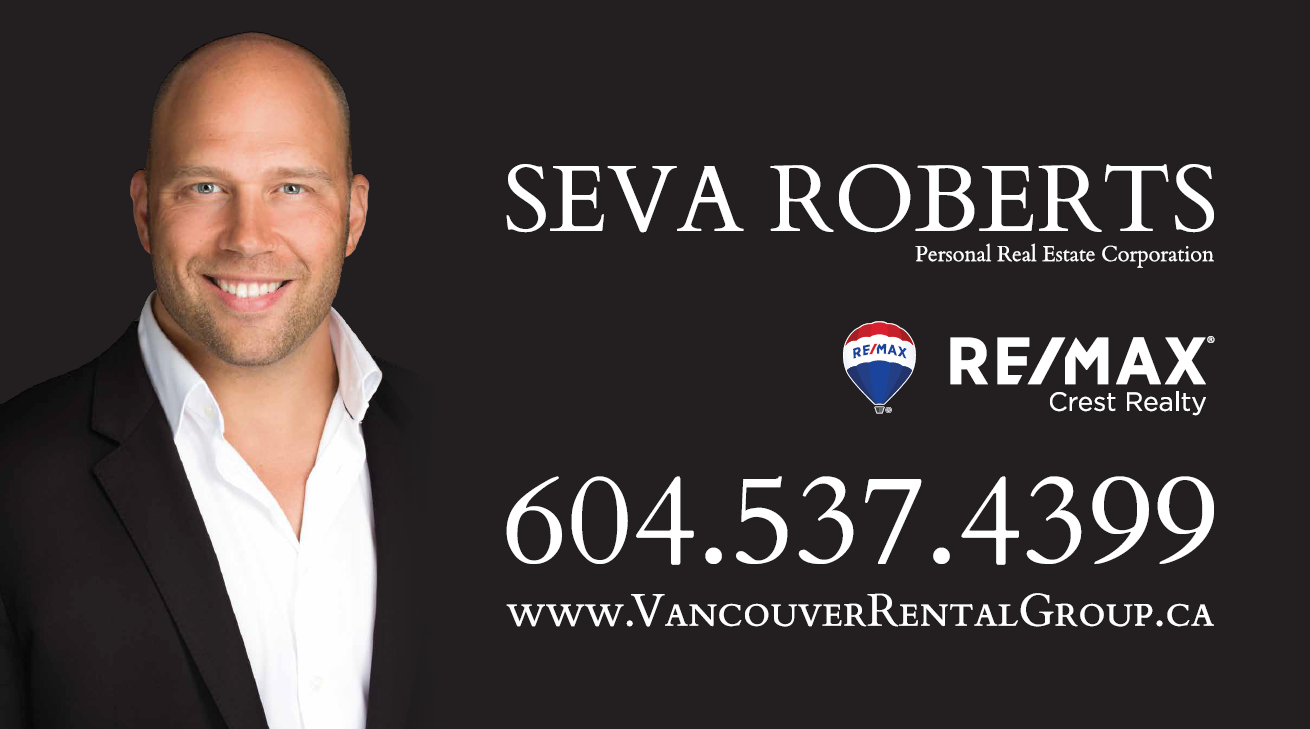Unlocking the services of a professional property management company in Vancouver is like opening a door to a new dimension of property ownership. But before you sign on the dotted line, it’s crucial to understand the fees that come with the territory. Property management fees can vary widely, and it’s not always clear what you’re paying for.
As a seasoned pro in the rental property game, I’ve seen my fair share of management agreements over the years. Today, I want to break it down for you – the nitty-gritty of property management fees, what they usually include, and how to ensure you’re getting the most value for your hard-earned cash.
Table Of Contents:
- Types of Property Management Fees
- What Do Property Management Fees Cover?
- Factors Affecting Property Management Fees
- How Much Does It Typically Cost to Have Someone Manage Your Property?
- Picking the Perfect Property Management Partner
- Conclusion
Types of Property Management Fees
As a property investor for over a decade, I’ve seen my fair share of property management fees. And let me tell you, they can add up quickly if you’re not careful.
But here’s the thing: a good property manager is worth their weight in gold. They’ll keep your rental property occupied, your tenants happy, and your cash flow steady.
So what kind of property management fees can you expect?
Setup fee
Property management companies in Vancouver, BC do typically charge a one-time setup fee, often equivalent to one month’s rent, to cover the initial costs of onboarding a new client and property. This setup fee is in addition to the ongoing monthly management fee of 6-12% of rental income.
Ready to trust someone with your property investment? First, arm yourself by asking them the following essential queries:
How many years have they been in business? Can they speak to a comprehensive vetting process to secure qualified tenants?
Property management fees pay for more than just finding a tenant and collecting rent. Think of them as your safety net, always there to catch any curveballs life throws your way.
When you contract with a property management company, expect to pay a commission of 6% to 12% of the rental value. This fee goes to the management company. However, some companies charge a flat rate of $100 to $200 per month, especially when the rental income is relatively low.

Leasing fee
When your property manager finds you a tenant, they’ll typically charge a leasing fee. This is usually 50% to 100% of the first month’s rent. It covers the cost of marketing your property, showing it to prospective tenants, and drawing up the lease agreement.
Monthly management fee
This is the bread and butter of property management fees. Most property managers charge a monthly fee of 8-12% of the rent collected.
Picture this: your property rakes in $2,000 in rent each month. Expect to budget $160-$240 monthly for a management fee. From collecting rent checks without a hitch to swiftly tackling repair work and maintaining a good rapport with residents – it’s just another day at the office.
Vacancy fee
Some property managers will charge you a fee even when your property is vacant. This is to cover the costs of keeping the property in “show-ready” condition and marketing it to potential tenants.
Vacancy fees can be a flat rate or a percentage of the typical monthly rent. Make sure you understand how your property manager handles vacancies before signing on the dotted line.
Lease renewal fee
When a tenant renews their lease, your property manager may charge a lease renewal fee. This is usually a few hundred dollars and covers the cost of drawing up a new lease agreement.
Some property managers will waive this fee if the tenant signs a longer lease, so it’s worth asking about.
What Do Property Management Fees Cover?
Now that we’ve covered the types of property management fees, you might be wondering what exactly you’re paying for. Here’s a rundown of the services typically included in your management costs:
Marketing and advertising
Your property manager will get the word out about your available rental through online listings, social posts, and even the good old classified ads to attract quality tenants.
They’ll also handle showings and open houses to get your property rented as quickly as possible.
Picking and vetting the right tenants
The secret sauce to a profitable rental lies in finding that dream tenant. Your property manager will handle the tenant screening process, including background checks, credit reports, and reference checks.
They’ll also handle the lease signing and move-in process to ensure a smooth transition for your new tenant.

Rent collection and accounting
Your property manager will collect rent from your tenants each month and deposit it into your bank account. You can expect regular updates that lay out all of your financial movements each month – clear and simple.
If a tenant is late on rent, your property manager will handle the late notices and follow up to ensure you get paid.
Property maintenance and repairs
A neat property doesn’t just draw in potential tenants; it also convinces current ones to stay put. Your property manager will handle all maintenance and repair requests from tenants, from leaky faucets to broken appliances.
Expect them to walk through your property often, spotting and fixing small problems early on so they don’t spiral out of control.
Legal compliance and evictions
Navigating the maze of landlord-tenant laws can be tricky, with rules that change depending on where you live. But with a skilled property manager on your side, you can rest easy knowing your rental is always up to code.
If an eviction becomes necessary, your property manager will handle the legal process to remove the tenant and get your property back on the market as quickly as possible.
Factors Affecting Property Management Fees
Not all property management fees are created equal. The amount you’ll pay can vary based on several factors, including:
Location and market conditions
Fees can vary widely by location, even within the same city. In general, areas with higher property values and rental rates will have higher management fees.
Market swings also have their part to play. In a hot rental market, property managers may be able to charge higher fees due to increased demand for their services.
Property size and complexity
Your property management fees are influenced by the size and intricacy of your property. A larger property with several units will demand more attention and resources to manage effectively compared to a single-family residence.
Properties boasting extras like a swimming pool or gym come with unique challenges that require a property manager who knows their stuff.
Services included in the management agreement
The specific services included in your property management agreement can also impact your fees. Some property managers offer tiered pricing based on the level of service you require.
For example, a basic package may include rent collection and maintenance, while a premium package may also include marketing, tenant screening, and eviction services.
Experience and reputation of the property management company
Experience matters when it comes to property management companies, and it can impact the fees you pay. A company that’s been around for years and has a strong reputation in the industry may charge more than a newer company still building its client base. But that extra cost can be worth it for the peace of mind that comes with working with a proven partner.
Remember this – skimping on price might just mean compromising on quality too. A higher fee may be worth it if it means better service, fewer vacancies, and higher tenant retention rates.
Landing a top-notch property manager is like hitting the jackpot; they cover everything from scouting out tenants to taking care of leaky pipes. But those services come at a cost. Expect setup fees, monthly management charges (8-12% of rent), leasing fees (up to 100% of the first month’s rent), and sometimes even vacancy or eviction fees. Choose wisely because great service can mean steadier cash flow and fewer headaches.
How Much Does It Typically Cost to Have Someone Manage Your Property?
When it comes to property management fees, there’s no one-size-fits-all answer. The amount you’ll pay varies based on the type of property, the services included, and the property management company you choose.
Residential property
For residential properties like single-family homes or small multi-unit buildings, expect to pay between 8% to 12% of the monthly rent collected. Some companies may offer a lower percentage, like 6.5%, for more basic services such as rent collection and handling tenant issues. Heads up – leasing out vacant spots, eviction processes, or supervising maintenance work could lead to some additional costs. Always clarify what’s included in your monthly management fee and what could cost extra.
Commercial property
Managing commercial properties, like office buildings or retail spaces, can be more complex. Fees for these properties typically range from 4% to 12% of the monthly rent. It boils down to a few key things – how big or small your space is, where it’s planted geographically speaking, and if premium services are for maintenance tasks that go above and beyond. Managing commercial spaces? It’s more than just rent collection; expect fees for project oversight and finding those cash-paying tenants. Getting the lowdown on costs early means you won’t get hit with any unexpected bills later.
Short-term rental property
With the rise of platforms like Airbnb and VRBO, short-term rentals have become increasingly popular. However, managing these properties is more labor-intensive due to the high turnover rate and additional services required, like cleaning and restocking between guests. As a result, short-term rental management fees are usually higher, ranging from 20% to 50% of the rental income. The exact percentage depends on the location, type of property, and the level of service provided.
When you’re looking at vacation rentals, remember this tip: Managers might charge you differently based on what you need. More services like hands-on concierge help will cost extra. Others charge a flat monthly fee plus a percentage of the rental income.
Picking the Perfect Property Management Partner
With so many property management companies out there, how do you choose the right one for your needs? Alright, focus on these important bits:
Research and compare property management companies
Start by researching property managers in your area. Hunt down businesses steeped in handling properties similar to what you own; their seasoned expertise could make all the difference. Hop onto their web pages for an adventure. Dig around for opinions shared by folks with keys in hand – whether they’re handing them over or just received them. Listening to what others say about response times, clarity in messages, and overall happiness can steer you right. Don’t just go with the cheapest option. While fees are important, the quality of service and the company’s track record are equally crucial.
Don’t forget to give their credentials and past work a thorough scan
Asking about what a potential property manager has done before can shine a light on whether they’re right for you. Dig into their experience timeline in this field, pinpoint what properties get their focus sharp, and check for any special training or badges of honor on staff credentials. A great property manager knows the local rental scene inside out, stays sharp on laws affecting landlords and tenants, and has a knack for keeping properties in top shape while filling them with happy renters. They must be connected with skilled professionals from plumbers to electricians – ensuring that help is just a phone call away for any repair or maintenance need.
What else should we be asking? Here are a few thought-starters.
- Ever wonder how we land such great tenants time after time? It all boils down to our bulletproof screening method designed to attract only the best of the bunch – those who are as dependable as they come.
- How do you address tenant issues, complaints, or lease violations, and what is your eviction process if necessary?
- I’m curious if there are folks who’ve already experienced working with you. What do they usually mention about the way you manage things and stay connected?
- When it’s time for some upkeep or a fixer-upper moment, rest easy knowing we’re connected with the best local experts who are just a call away.
- For managing your properties efficiently and keeping you updated every step of the way, we use some pretty nifty technological gadgets.
- How frequently do you provide financial statements and property updates, and what reporting can I anticipate?
- Do you possess experience managing properties similar to mine in terms of type, size, and location?
- Could you furnish a sample management contract for my review, outlining the terms and fees in detail?
- What is your policy regarding the termination of the management agreement in the event of dissatisfaction with your service?
Alongside your pointed questions in interviews, embrace these hands-on strategies to fully size up your future property managers. Let these pointers guide you straight to a property management solution that fits like a glove.
Tips for Vetting Candidates:
- Look for a property manager with a valid license and several years of experience.
- Make sure to check their history by looking at what others have said online and asking for references.
- Ensure they have robust tenant screening and property maintenance processes.
- Understand all fees upfront, including any hidden or miscellaneous charges.
- Assess their communication style and responsiveness during the interview process.
- It pays to check if handling their property investments is something they do themselves; it speaks volumes.
- Make sure they know their stuff when it comes to the area’s rental laws.
- Evaluate whether their services and pricing align with your specific needs and budget.
Review their fee structure and services
Before signing a contract, make sure you fully understand the property manager’s fee structure and what services are included. Some companies charge a flat monthly fee, while others take a percentage of the rent collected. Remember to question other expenses linked with renting properties, removing problematic renters, or supervising upkeep duties. Find out what services are included in the monthly management fee and what could cost extra. A good property manager will be transparent about their fees and services and will take the time to explain their contract in detail.
Check references and reviews
Don’t just take the property manager’s word for it. Ask for references from current and past clients, and call them. Uncover their favorite parts and pet peeves about being part of the team. Check online review sites like Google, Yelp, and the Better Business Bureau. Look for patterns in the comments, both positive and negative. Keep in mind that no company is perfect, and even the best property managers may have a few negative reviews. The real test comes in their response to feedback and how swiftly they iron out any issues.

Consider their communication and responsiveness
Effective communication is key to a successful property management relationship. The best property managers are those who update you regularly, tackle your concerns swiftly, and are never hard to reach. Ask how they typically communicate with property owners and tenants. Do they use email, phone, text, or a combination? What’s their frequency in dishing out new updates and shooting over reports?
Ask about their game plan for urgent situations and what happens after hours. You need a property manager who’s on the ball and keeps you in the loop, not someone who leaves you guessing what’s next. Your venture into real estate gets a big boost with a solid property management partner by your side. Pick a company that fits like a glove with what you want and need, and watch as your rental earnings grow while your headaches shrink.
For personalized property management solutions tailored to your needs, reach out to us at Vancouver Rental Group at (604) 537-4399, and let’s embark on a successful partnership together!

Property management fees vary widely, influenced by property type, services needed, and the company’s pricing model. For residential properties, expect 8-12% of monthly rent; commercial spaces range from 4-12%, while short-term rentals can hit 20-50%. Always dig into what’s covered to avoid surprise costs. Choosing the right manager means comparing experiences, understanding fee structures thoroughly, and checking reviews and references for real feedback on performance and communication style.
Conclusion
Property management fees can seem like a maze of percentages, flat rates, and hidden costs. By getting to grips with the different charges and what they go towards, plus knowing how they add up, choosing a suitable property management team becomes much clearer.
Remember, the cheapest option isn’t always the best. Pick those who lay all cards on the table regarding fees. Their past successes speak volumes; plus they stay connected offering unbeatable support. With the right property manager on your side, you can sit back, relax, and watch your rental income roll in.
So, whether you’re a seasoned investor or a first-time landlord, don’t let property management fees catch you by surprise. Load up on the right info, ask those key questions, and pick a management team that aligns with what you’re looking for and your budget. Your rental property (and your bank account) will thank you.




